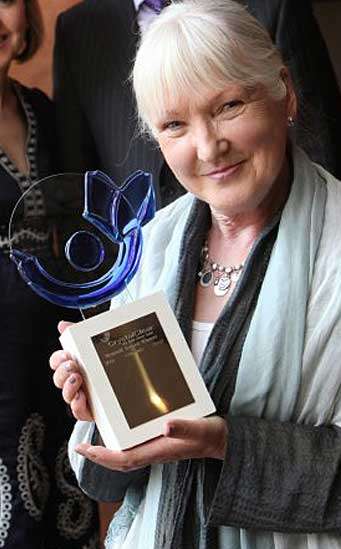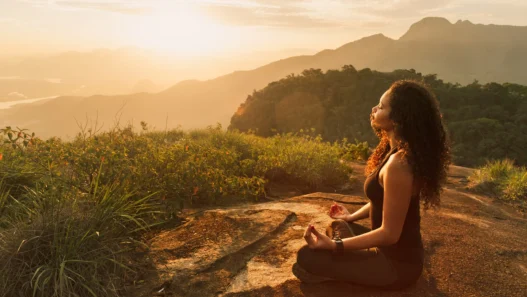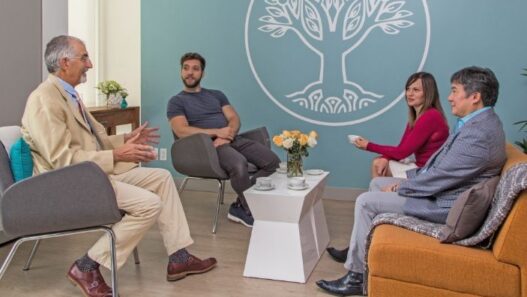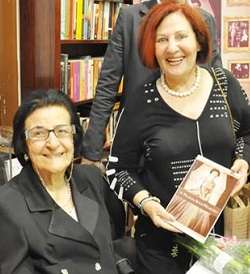Does meditation practice
cut you off from the real world?
 When The Beatles took up the practice of Transcendental Meditation in 1968 and brought the technique to the limelight of the mainstream media, one of the questions that was put to them over and over and over again was this: ‘Are you not afraid to become too aloof and distanced from the real world?’
When The Beatles took up the practice of Transcendental Meditation in 1968 and brought the technique to the limelight of the mainstream media, one of the questions that was put to them over and over and over again was this: ‘Are you not afraid to become too aloof and distanced from the real world?’
This fear reflects the arguably most persistent misunderstanding about meditation in the West – the idea that meditation leads to a complete withdrawal from society. That meditation is a technique which helps to find personal well-being and wisdom – yet does so by isolating one from the worries of the everyday world. That the meditator transcends in the sense of achieving individual bliss and cultivating a certain numbness to the pain of others.
In fact, nothing could be farther from the truth!
Transcendental Meditation
and social responsibility
It is of course true that Transcendental Meditation – a simple, effortless mediation technique practiced twice a day for 20 minutes – brings the practitioner into a more harmonious, relaxed and stable state of well-being. As the level of stress goes down, positive body-mind effects flow naturally from the practice.
However, this very real and thoroughly researched outcome does not come at the price of emotional and social coldness. The exact opposite is true: experience shows that more bliss and confidence lead to more engaged, compassionate and empathic position towards other beings.
There is less reason to view everyone as a competitor and an outright antagonist. A practitioner of mediation has not only more and physical strength to take on social responsibilities – he or she has, as the natural state of consciousness stabilizes and strengthens, also more innate reason to do so.
In the way of a little empirical study, here are life stories of two women – of Alice Leahy, 70, from Ireland, and Aziza Hussein, 91, from Egypt. These two outstanding ladies have been practicing Transcendental Meditation for decades while being involved in more than the average share of social activism in their respective communities.
Meditation and social activism:
Alice Leahy

“It’s early morning and a queue is already forming outside the old red-brick basement.
Dozens file into the centre where they can get breakfast, a shower, a change of clothes and help with practical issues such as welfare applications or medication. Others need urgent help with feet or legs needing medical attention.”
This setting in a suburb of Dublin opens a recent report on the life of Alice Leahy, a woman who is a co-founder of a voluntary organization, Trust, providing food and assistance to those in need. Alice has been working for Trust for more than 35 years.
Instead of being worn out and jaded, she “takes an interest in homeless people as if she were seeing them for the first time … with an air of welcome and acceptance.”
“If you look around, people are all under pressure. They don’t spend time with people. But if you make time, it can make one person feel better and feel like a human being.” Alice says.
She says that one of the main reasons which has allowed her to keep on going – Alice Leahy, though already 70, is ‘not even thinking’ of retirement – is her daily routine of 40 minute walks and sessions of Transcendental Meditation.
Meditation and social activism:
Aziza Hussein

- Aziza Hussein (left) at the presentation of her autobiography, A Pilgrim Soul: Memoires. She graduated from the American University in Cairo in the late 1940s and has since engaged in civil work with a special attention dedicated to matters related to women’s rights, especially the much-challenged reproductive rights and rights of children. She also represented Egyptian civil society at UN conferences and meetings.
A different yet equally touching portrait comes from Egypt. The example shown here by Aziza Hussein is especially valuable in the midst of all the upheavals and conflicts which are so relentlessly shaking the Egyptian society at the moment.
Aziza Hussein, in her early 90s, is a leading figure in the local civil society. As a telling proof of her continuing vitality and sharp intellect, Aziza has just released her autobiography.
A feature story published on the occasion in Dina Ezzat AhramOnline says: “Aziza Hussein might be now losing a little bit of her energy, but not much else is lost on this elegant lady who has dedicated her life to championing the cause of civil society. Her smile is still warm and her presence is still strong.”
Born to a wealthy family, Aziza has championed civil liberties and non-sectarianism for all her long life. The present events make her sad and hopeful at the same time – fearful of escalating bloodshed, yet seeing the unique window of opportunity for establishing new democratic foundations for the Egyptian society.
Relying on her ’dedicated practice’ of Transcendental Meditation definitely helps Aziza to keep her bearings in the complex political situtation. “I am just hoping we don’t have to harm one another,” she confesses, and states that although she does not especially like the Muslim Brotherhood, “there is always a light wherever you look, you just have to spot it, and we can spot the enlightened ones there and engage them.”



















